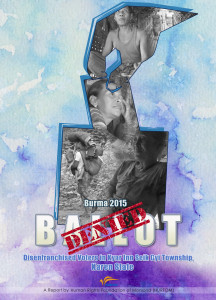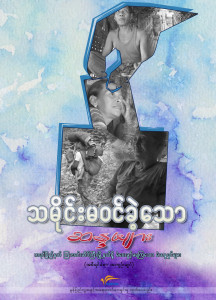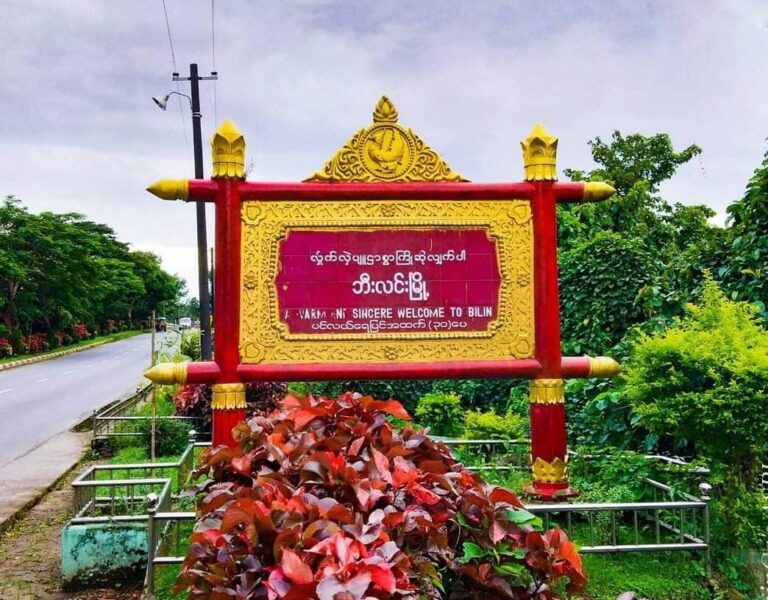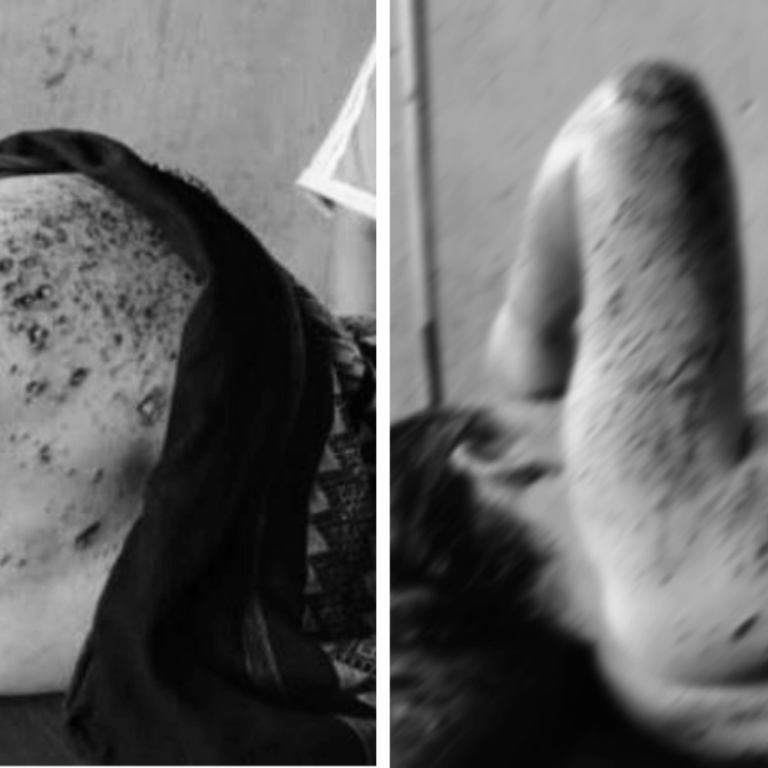Media release:
HURFOM: Today the Human Rights Foundation of Monland (HURFOM) releases ‘Burma 2015: Ballot Denied’, a report focussing on November’s national elections in Burma. Download full report in Eng | Brief in Burmese | Media Release in Burmese
 The report shows that – contrary to much reporting in recent weeks over the victory of Daw Aung San Suu Kyi’s National League for Democracy (NLD) – Burma’s journey to political freedom is far from complete. Focussing on one township in Karen State, the authors find that tens of thousands of Mon and Karen citizens were disenfranchised during the elections, sending a dangerous message that members of Burma’s war-affected ethnic minority populations remain excluded from the country’s developing political community.
The report shows that – contrary to much reporting in recent weeks over the victory of Daw Aung San Suu Kyi’s National League for Democracy (NLD) – Burma’s journey to political freedom is far from complete. Focussing on one township in Karen State, the authors find that tens of thousands of Mon and Karen citizens were disenfranchised during the elections, sending a dangerous message that members of Burma’s war-affected ethnic minority populations remain excluded from the country’s developing political community.
Burma 2015: Ballot Denied draws on 60 interviews conducted in October 2015, in Kyar Inn Seik Gyi Township, Karen State. The report finds that disenfranchisement within the township resulted from: poll cancellations in 38 village tracts due to alleged ‘security concerns’; insufficient access to polling stations in remote villages; and poor availability of voter education in remote border areas.
Among notable findings, respondents unilaterally questioned the validity of security concerns used as a pretext for cancelling polling, maintaining that the villages concerned had been peaceful for years.
 The report contends that responsibility for disenfranchisement in Kyar Inn Seik Gyi Township lay primarily with Burma’s Union Election Commission (UEC). However, given that non-state armed groups exert considerable authority over villages covered by the report, non-state armed groups are considered to share significant culpability. HURFOM found that armed groups could have increased voter participation within their areas of control by cooperating with the UEC over issues such as voter education and transport to polling stations.
The report contends that responsibility for disenfranchisement in Kyar Inn Seik Gyi Township lay primarily with Burma’s Union Election Commission (UEC). However, given that non-state armed groups exert considerable authority over villages covered by the report, non-state armed groups are considered to share significant culpability. HURFOM found that armed groups could have increased voter participation within their areas of control by cooperating with the UEC over issues such as voter education and transport to polling stations.
Lessons for future elections include that poll cancellations should be made only when this constitutes a reasonable reaction to the objective security situation on the ground. Other lessons include the need for: urgent reform of the Union Election Commission to ensure its independence, prioritization of access to polling in election planning and the strengthening of voter education in remote ethnic villages.
HURFOM concludes that disenfranchisement of ethnic groups represents a serious concern when hopes for national peacebuilding and reconciliation rest on the success of efforts to secure political inclusion for ethnic citizens. As citizens across the country celebrated the election’s results, the message that disenfranchised ethnic war-affected populations are likely to have received is that they are not part of the country’s developing political community. HURFOM advocates that, if national reconciliation is to be achieved, reforms under any future government must prioritise political inclusion for ethnic citizens, to include meaningful commitments to universal and equal suffrage.
For more information:
Mi Htaw Chan – (Coordinator, Human Right Foundation of Monland – Burma)
+66 (0) 8 9483 6761, +66 (0) 9 0446 4437
Min Banya Oo – +66 (0) 9 2705 3865 (Contact Person for English Language)
Email: info@rehmonnya.org, htawchanchan@gmail.com, banya.william@gmail.com, Website: www.rehmonnya.org
Please download the Full Report [ENGLISH], Brief [BURMESE] and Media Release [BURMESE] here.



